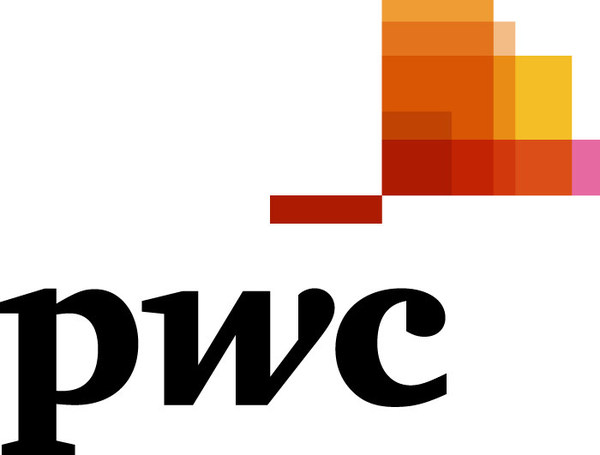Strengthening resilience is the key to success in 2021, says PwC's Global Crisis Survey

|
- More than 70 percent of respondents to this year's survey said their business was negatively impacted by the COVID-19 pandemic
- 20 percent of respondents said the pandemic had an overall positive impact on their organisation
- 75 percent of respondents are confident they can integrate what they've learned and invigorate their organisational resilience
LONDON, March 30, 2021 /PRNewswire/ -- One year after Covid-19 was declared a global pandemic, PwC's second Global Crisis Survey looks at the worldwide business community's response to the most disruptive global crisis of our lifetime. More than 2,800 business leaders shared data and insights, representing organisations of all sizes, in 29 industries and across 73 countries.
The first survey, published in 2019, revealed that 95% of respondents expected a crisis within the next two years -- but not a pandemic, which had dropped altogether from the threats business leaders said they feared. The past year has underscored that the challenge of crisis management is not about predicting the future, but dealing with the unpredictable. Businesses must focus on building a foundation of resilience to weather whatever comes next.
More than 70% of respondents to this year's survey said their business was negatively impacted by the pandemic and 20% said the crisis had a positive impact overall on their organisation. Technology and healthcare organisations were more likely to be positively impacted, while travel and hospitality sectors suffered the most negative effects. Organisations that fared well were more likely to rely on a dedicated crisis team to drive their response to the crisis.
'As global organisations assess their response to the pandemic, the survey data and insights provide a compelling roadmap for rethinking and strengthening resilience capabilities,' said Kristin Rivera, (Global Crisis Leader, PwC US) . 'All eyes are finally looking toward the future. Learning from how businesses responded to the crisis is an important first step toward building the right foundation for what's next. Crisis planning, resilience programs and the protection and consideration of physical and emotional needs of their employees are all integral parts to preparing for the inevitable.'
PwC's survey reveals that, even with a well-defined crisis team, organisations need an agile crisis management program that can adapt to address various types of disruption. Only 35 percent of organisations had a crisis response plan that was 'very relevant,' which means the majority of organisations didn't design their plans to be 'crisis-agnostic' — a hallmark of a resilient organisation.
Based on the findings from the survey, PwC has collated three ways companies can better prepare for crisis:
- Design a strategic crisis response plan to mobilise swiftly, stabilise business operations and respond effectively to the shockwaves of disruption.
- Break down silos. An integrated program is essential to executing a successful crisis response and to building resilience during 'peacetime.'
- Prioritise and build organisational resilience — not just to succeed, but to survive.
Organisations in a better place today were significantly more likely to say they'd already given substantial attention to organisational resilience and planned how to respond to significant business disruption. Seven out of 10 organisations are planning to increase their investment in building resilience. And among risk leaders, that number is as high as nine in 10.
'Building resilience into your organisational DNA requires addressing it as a priority,' said David Stainback ( Crisis Leader, PwC US). 'Resilience is foundational to how an organisation weathers disruption and creates new opportunities.'
According to survey respondents, for 2021, the outlook is positive: In PwC's 24th Annual Global CEO Survey, published earlier this month, a record-high 76 percent of CEOs believe global economic growth will improve in 2021.
That optimism aligns with PwC's Global Crisis Survey 2021 data, where three out of four companies are confident they can successfully integrate what they've learned through the crisis and invigorate their organisational resilience.
Download the report series at www.pwc.com/crisis-resilience[1] and to hear more about the Global Crisis Survey 2021 and building resilience listen to the latest episodes of our Emerge stronger through disruption podcast series[2].
About PwC
At PwC, our purpose is to build trust in society and solve important problems. We're a network of firms in 155 countries with over 284,000 people who are committed to delivering quality in assurance, advisory and tax services. Find out more and tell us what matters to you by visiting us at www.pwc.com[3].
PwC refers to the PwC network and/or one or more of its member firms, each of which is a separate legal entity. Please see www.pwc.com/structure[4] for further details.
© 2021 PwC. All rights reserved.
Logo - https://mma.prnasia.com/media2/1121790/PWC_Logo.jpg?p=medium600[5]
References
- ^ www.pwc.com/crisis-resilience (www.pwc.com)
- ^ Emerge stronger through disruption podcast series (www.pwc.com)
- ^ www.pwc.com (www.pwc.com)
- ^ www.pwc.com/structure (www.pwc.com)
- ^ https://mma.prnasia.com/media2/1121790/PWC_Logo.jpg?p=medium600 (mma.prnasia.com)
Read more https://www.prnasia.com/story/archive/3319132_AE19132_0














